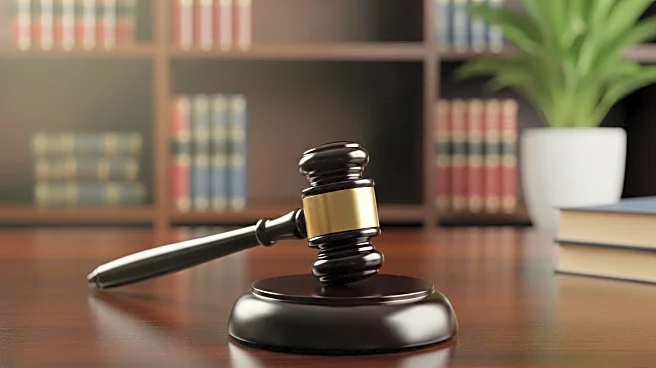What is the story about?
What's Happening?
A federal judge has issued a temporary ruling preventing President Trump from dismissing Federal Reserve Governor Lisa Cook. This decision comes amid allegations from Trump and Federal Housing and Finance Authority director William Pulte that Cook committed mortgage fraud prior to her appointment, which she denies. The ruling is an early setback for the Trump administration in its efforts to exert control over the Federal Reserve, a traditionally independent institution. Cook, who is part of the board responsible for setting U.S. interest rates, has sued Trump, seeking to have his firing order declared unlawful and void. The case is significant as it challenges the legal boundaries of presidential authority over the Federal Reserve, with implications for the central bank's autonomy.
Why It's Important?
The ruling underscores the ongoing tension between the executive branch and the Federal Reserve, highlighting the importance of maintaining the central bank's independence from political interference. If President Trump were successful in removing Cook, it could set a precedent for increased political influence over the Federal Reserve, potentially affecting its ability to set interest rates based on economic rather than political considerations. This case could have far-reaching implications for U.S. monetary policy and the stability of financial markets, as the Federal Reserve's decisions are crucial for economic growth and inflation control. Stakeholders in the financial sector are closely monitoring the situation, given its potential impact on interest rates and economic policy.
What's Next?
The legal battle is expected to continue, with the possibility of the case reaching the U.S. Supreme Court. The outcome could redefine the scope of presidential power over the Federal Reserve and clarify the legal standards for removing a governor 'for cause.' As the central bank prepares for its upcoming meeting, where it is anticipated to announce an interest rate cut, the ruling may influence its decision-making process. The Federal Reserve's leadership, including Chair Jerome Powell, has faced criticism from President Trump, who has urged the bank to lower borrowing costs to stimulate the economy. The court's decision may impact future interactions between the White House and the Federal Reserve.
Beyond the Headlines
This case highlights the delicate balance between political authority and institutional independence in the U.S. government. The legal definition of 'for cause' removal is being tested, which could lead to broader discussions about the governance and accountability of federal agencies. The situation also raises ethical questions about the extent to which political leaders can influence independent bodies that are designed to operate free from partisan pressures. The outcome of this case may prompt legislative or judicial clarifications regarding the removal of Federal Reserve governors, potentially affecting the long-term governance of the central bank.















